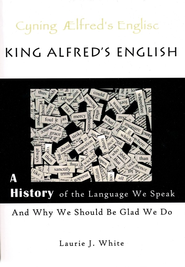MIDDLE SCHOOL PROMPTS
This is a good time of year to read James Whitcomb Riley’s “When the Frost Is on the Punkin,” which you can read here. It describes the glories of life on the farm during the cool, crisp days of autumn, and the harvest season.
In the poem, you’ll find this phrase: “The husky, rusty russel of the tossels of the corn / And the raspin’ of the tangled leaves as golden as the morn. . .”
Note: Riley misspells “russel” on purpose. The correct spelling is “rustle.” Same with “tossels,” which is supposed to be “tassels.” And, of course “punkin,” which is, you guessed it, “pumpkin.” He’s using a country dialect in his writing.
Riley uses the three wonderful words “husky, rusty russel” to describe the sound of the dried leaves of the corn plant as they rub together in the wind. If you have ever heard those dry leaves or blades rubbing together, you can almost hear the “s” sound in the wind, as though they are whispering to each other.
What are Riley’s secrets to writing so well?
Read More



















